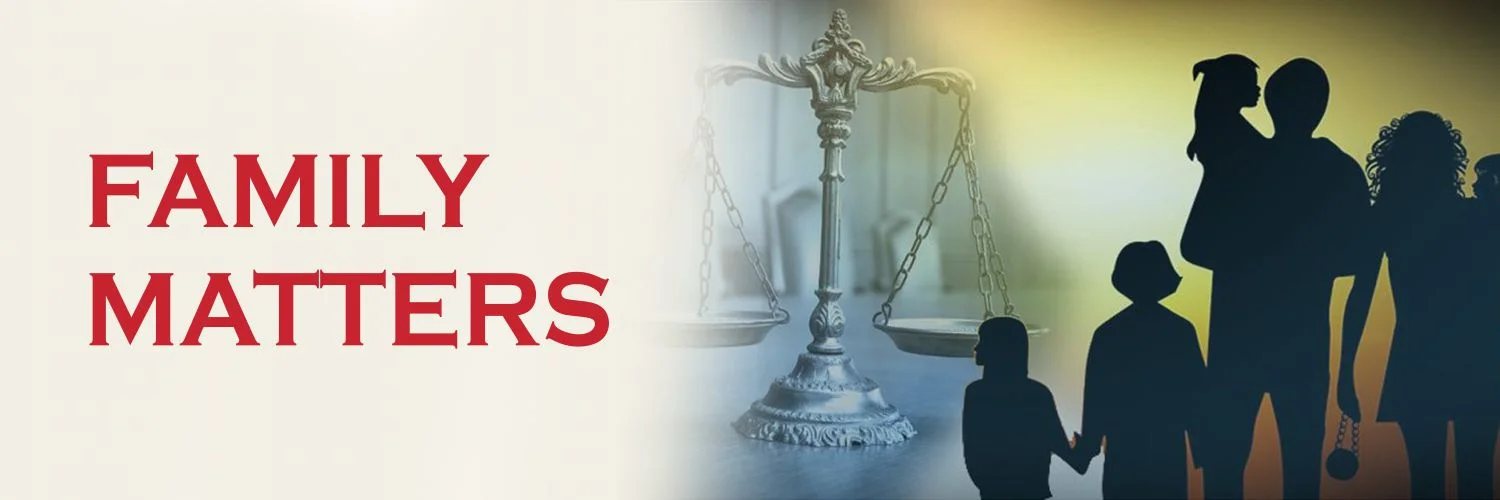
Family Matters
In the Indian society, family holds a special position. For an Indian, family comes first. India being a land of diverse religions, diverse laws govern each religion; for example, Hindu law governs Hindus (including Buddhists, Jains, and Sikhs), Muslim law governs the Muslims, Christian law governs the Christians, and the Parsi law governs the Parsis in India.
Today, the traditional joint family system can hardly be seen. There are still joint families, but very few. Nuclear family is the norm now. These changes may be good or bad, but one thing is for sure – they have challenged the family system of India.
What is family law?
Family law is a section of law that tackles issues relating to family. These can be marriage, divorce, child custody, adoption, alimony, inheritance, and others.
The prima facie objective of family law is to make sure the institution called family functions smoothly in the society and there is no discord among family members. The law tries its best to safeguard the interest of each member of the family by giving them a set of rights so that they can maintain their social status and dignity.
Marriage and divorce laws
Specific Acts and laws govern marriage and divorce in India. These laws are different for different religious groups, such as:
- The Hindu Marriage Act, 1955
- The Indian Christian Marriage Act, 1872
- The Dissolution of Muslim Marriage Act, 1939
- The Parsi Marriage and Divorce Act, 1936
- The Special Marriage Act, 1954
- The Indian Divorce Act, 1869.
The Special Marriage Act applies throughout India and is for people of all religions for registering their marriage.
Family courts
Family courts came into being under The Family Courts Act, 1984. The aim was to resolve disputes between family members and to have speedy trials. Family courts follow the Civil Procedure Code (CPC).
Apart from dealing with marriage matters, divorce, child custody, alimony, and adoption, family courts deal with suits related to granting decree for judicial separation, issues related to maintenance to women and children, restitution of conjugal rights, passing an order of injunction, property related disputes, issues about the legitimacy of a person, custodial rights of a child or minor, and others.
Family court can include:
- Adoption court
- Domestic relation court
- Juvenile court
- Probate court
Each type of court handles specific matter. For instance, juvenile court handles matters related to juveniles or minors. Probate court handles matters related to estates and wills and so on.
Benefits to choose service
Although it is better to resolve family disputes within the home, there are certain disputes that go out of hand and cannot be resolved amongst family members. In this case, you must take legal help. A lawyer will help you take the matter to the court or even help in out-of-court settlement. Whatever may be the case, a sound legal assistance can take much stress away and help resolve the matter quicker and in a manner that is in the interests of family members.
Frequently Asked Questions (FAQs)
District Court is the lowest level of family court in India. It handles matters like divorce, dowry matters, and child custody.
City Civil Court is similar to district court, but they are situated in bigger cities. They are better equipped to handle complex legal cases and often have a heavier caseload than that in a district court.
High Court are higher than District Court and City Civil Court. They handle matters like child support, alimony, and adoption.
Except the Supreme Court, every court is a subordinate court of some other court. For example, the High Court is the subordinate court of Supreme Court. The District Court and the Session Court are subordinates of High Court. At the village level, Lok Adalat or Nyay Adalat act as subordinate courts to resolve family disputes of villagers who cannot travel to cities.
It can take a few months or a few years to prosecute a case in the family court. It depends on how severe the case is and what evidence is present or needs to be collected.
If the matter goes to court, then you must seek legal help to ensure your rights are protected and you get justice. There are also times when the family fight turns ugly. You need to hire a lawyer for your own safety and to ensure justice is done. An experienced family lawyer will give you sound legal advice and/or solution and can represent you strongly in the court.
Connect With Our Lawyers
Be rest assured that:
- ✓ Your case details are 100% confidential
- ✓ You are talking to a solution-oriented, experienced lawyer
- ✓ You get money-back guarantee
- ✓ Full Refund / Moneyback Guarantee
- ✓ You receive a prompt response
- ✓ You get viable advice or solution to your legal problems
or Call / Whatsapp Us
+91-8273682006